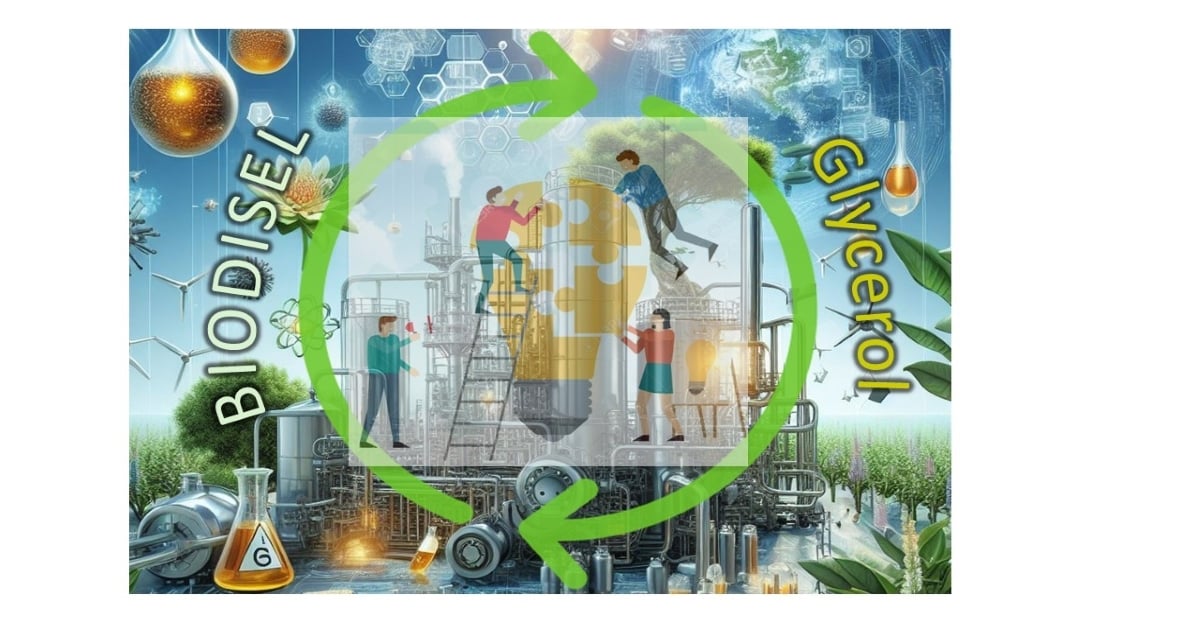Catalysis: The Key to Valorizing Crude Glycerol
A special issue of Catalysts (ISSN 2073-4344). This special issue belongs to the section "Catalysis for Sustainable Energy".
Deadline for manuscript submissions: 28 February 2025 | Viewed by 102

Special Issue Editors
Interests: heterogeneous catalysts; polyoxometalates; catalytic metal–organic frameworks; sustainable catalytic processes; oxidation catalysis; hydrogen peroxide; desulfurization; glycerol oxidation; deep-eutectic solvents
Special Issues, Collections and Topics in MDPI journals
Interests: homogeneous and heterogeneous catalysts; Keggin heteropolyacids; polyoxometalates; metal catalysts; sustainable catalytic processes; oxidation catalysis; hydrogen peroxide; glycerol chemistry; biofuels and bioadditives
Special Issue Information
Dear Colleagues,
The valorization of the large amount of crude glycerol formed in the biodiesel industry is of primary necessity. There is no doubt that biodiesel is a non-toxic, biodegradable, and renewable fuel, allowing for safer handling and reduced carbon, sulfur, and particulate matter emissions. Industrial biodiesel is one of the most promising ways to replace fossil fuel. Biodiesel is obtained through the transesterification reaction of triglycerides, and glycerol is the by-product of this reaction, originating as 10% in weight in relation to biodiesel. As such, there is an excess of crude glycerol in the fuel industry, owing to the increased interest in biodiesel production. To increase biodiesel’s own sustainability, it is extremely important to develop strategies capable of reutilizing the crude glycerol obtained as waste. Glycerol has many different uses, but most are effective only in its pure form. This Special Issue intends to report effective processes for the purification and transformation of crude glycerol into valuable products with high economic and industrial viability.
Dr. Salete Balula
Prof. Dr. Márcio José da Silva
Guest Editors
Manuscript Submission Information
Manuscripts should be submitted online at www.mdpi.com by registering and logging in to this website. Once you are registered, click here to go to the submission form. Manuscripts can be submitted until the deadline. All submissions that pass pre-check are peer-reviewed. Accepted papers will be published continuously in the journal (as soon as accepted) and will be listed together on the special issue website. Research articles, review articles as well as short communications are invited. For planned papers, a title and short abstract (about 100 words) can be sent to the Editorial Office for announcement on this website.
Submitted manuscripts should not have been published previously, nor be under consideration for publication elsewhere (except conference proceedings papers). All manuscripts are thoroughly refereed through a single-blind peer-review process. A guide for authors and other relevant information for submission of manuscripts is available on the Instructions for Authors page. Catalysts is an international peer-reviewed open access monthly journal published by MDPI.
Please visit the Instructions for Authors page before submitting a manuscript. The Article Processing Charge (APC) for publication in this open access journal is 2700 CHF (Swiss Francs). Submitted papers should be well formatted and use good English. Authors may use MDPI's English editing service prior to publication or during author revisions.
Keywords
- crude glycerol
- biodiesel production
- sustainable catalytic processes
- purification methodologies
- effective glycerol usage
- catalytic esterification
- catalytic etherification
- catalytic acetalization
- catalytic oxidation
- deep eutectic solvents
Benefits of Publishing in a Special Issue
- Ease of navigation: Grouping papers by topic helps scholars navigate broad scope journals more efficiently.
- Greater discoverability: Special Issues support the reach and impact of scientific research. Articles in Special Issues are more discoverable and cited more frequently.
- Expansion of research network: Special Issues facilitate connections among authors, fostering scientific collaborations.
- External promotion: Articles in Special Issues are often promoted through the journal's social media, increasing their visibility.
- e-Book format: Special Issues with more than 10 articles can be published as dedicated e-books, ensuring wide and rapid dissemination.
Further information on MDPI's Special Issue polices can be found here.






